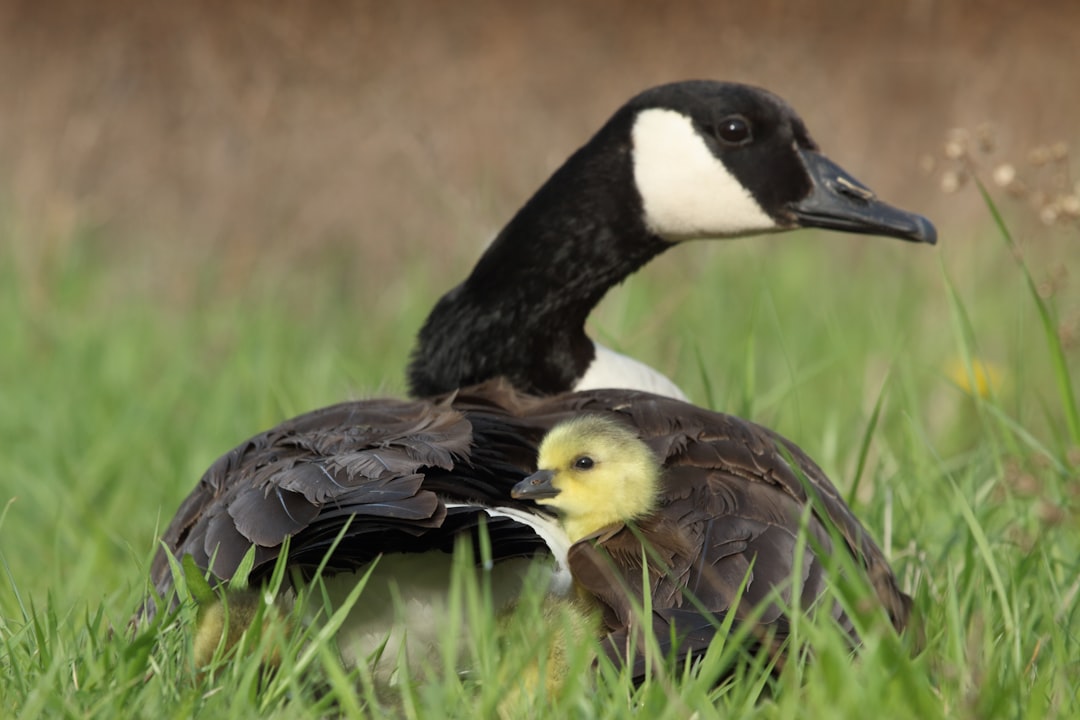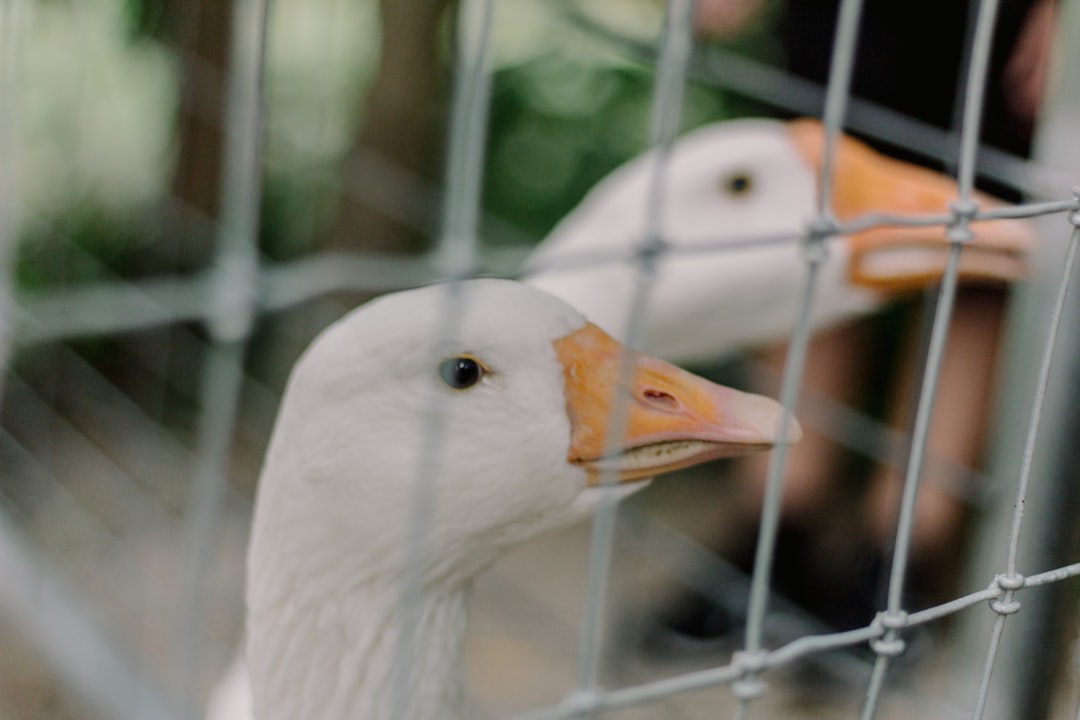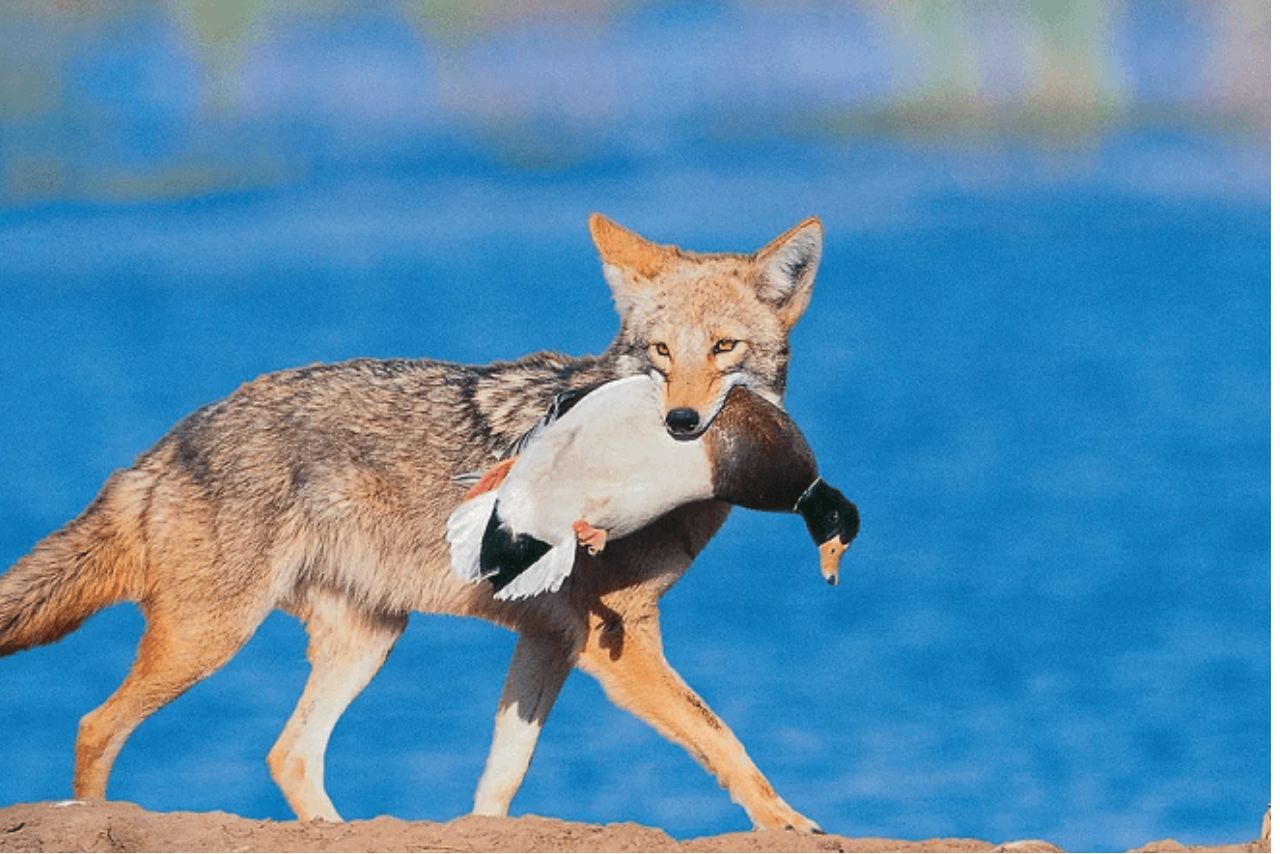How To Protect Ducks From Predators? To protect ducks from predators, there are several effective ways that can be implemented.
Firstly, it is important to secure the duck’s living area with proper fencing or netting, which will prevent predators from accessing the area.
Additionally, providing a safe and secure housing for ducks during the night can also minimize the risk of attacks.
Another way to protect ducks from predators is to keep them in groups, as predators are less likely to attack a large group of ducks.
Lastly, using motion-activated lights or sound devices can be an effective deterrent against predators.
Ducks are cute and adorable birds often kept as pets, especially on farms or in backyards.
However, they are vulnerable to predators such as foxes, raccoons, and hawks, which can pose a significant threat to their safety and well-being.
Protecting ducks from these predators is essential to ensure their survival.
In this blog post, we will discuss some effective ways to protect ducks from predators and provide useful tips to keep them safe.
Whether you are a duck owner or simply interested in these lovely birds, this post will provide you with valuable insights on ensuring their safety in the face of potential predators.
How To Protect Ducks From Predators?
Protecting ducks from predators requires a combination of measures such as securing their living area with fencing or netting, providing safe housing during the night, keeping them in groups, and using motion-activated lights .

It is important to be vigilant and proactive in implementing these measures to ensure the safety and well-being of your ducks.
By taking these following steps, you can create a safe and secure environment for your ducks to thrive and enjoy their lives without fear of predators.
Here are most common ways to protect your ducks from predators:
1. Use A High Fence

A high fence can be an effective way to keep predators out of the ducks’ living area.
The fence should be at least 4 feet high and buried at least a foot underground to prevent predators from digging underneath it.
Additionally, make sure that there are no gaps or holes in the fence that predators can sneak through.
2. Provide Shelter
Providing a safe and secure shelter for your ducks during the night is crucial to protect them from nocturnal predators.
The shelter should be enclosed with a solid roof and walls and have a door that can be closed at night.
It is also important to ensure that the shelter is well-ventilated and clean to prevent diseases.
3. Keep Ducks In Groups
Keeping ducks in groups can help deter predators as they are less likely to attack a large group of birds.
Ducks also feel safer when they are in groups, which can reduce stress levels and promote better health.
4. Use Motion-Activated Lights Or Sound Devices
Motion-activated lights or sound devices can be useful in scaring away predators.
These devices work by detecting motion or sound and emitting bright lights or loud noises that startle predators, causing them to flee.
5. Creating A Safe Environment:
Creating a safe environment for your ducks is essential in protecting them from predators.
Make sure that their living area is free from any potential hazards, such as sharp objects or toxic plants.
Regularly check their enclosure for any gaps or holes in the fencing and repair them immediately.
Also, keep an eye out for any signs of predators in the area, such as tracks or droppings, and take necessary precautions.
6. Using Deterrents:

In addition to the above-mentioned measures, there are several deterrents that can be used to protect ducks from predators.
Some of these include installing scarecrows or decoys that resemble predators, using chemical repellents such as predator urine or hot pepper spray, and introducing guard animals such as dogs or geese.
It is important to note that while these deterrents may be effective in some cases, they should not be relied on solely for duck protection.
7. Keeping Ducks Safe During Free Range:
Keeping ducks safe during free-range can be a bit more challenging than confining them to an enclosure.
However, there are still several measures that can be taken to protect them from predators. Make sure that the area where they roam is secure and predator-proof.
8. Install Bird Reflectors:
Another effective way to protect ducks from predators is by installing bird reflectors.
These are shiny objects that reflect sunlight and create a flashing effect, which scares off predators.
Bird reflectors can be placed around the perimeter of the duck’s living area or in the free-range area where they roam.
9. Make Sure You Keep Them Locked Up
Finally, it is important to remember to always keep your ducks locked up when you are not around to supervise them.
This means ensuring that their shelter is securely closed at night, and that any free-range areas are inaccessible when you are away.
Predators can strike at any time, so it is crucial to remain vigilant and proactive in protecting your ducks from harm.
10. Bury 1-2′ Of Hardware Cloth On The Outside Of Your Fence
Another measure to strengthen your perimeter fence is to bury 1-2 feet of hardware cloth on the outside of your existing fence. This will prevent predators from digging under or climbing over it.
11. Block Gaps And Holes In Your Fence
It’s important to inspect your perimeter fence regularly for any gaps or holes. Even the smallest gap can be an invitation for predators to enter and attack your ducks. Block any gaps or holes you find with wire mesh or other sturdy materials.
12. Always Close The Door At Night
Always close the door of your duck coop at night. Most predators are nocturnal and will be attracted to the darkness where they can easily attack your ducks.
Closing the door of the coop will prevent them from entering and keep your ducks safe. With these protective measures in place, you can rest assured that your ducks are well-protected from predators and other potential dangers.
13. Don’t Store Feed In The Coop
It’s important not to store feed in the coop. Doing so can attract predators and increase the risk of an attack on your ducks.
Instead, store feed in a secure container away from the coop and ensure that any spilled feed is promptly cleaned up.
14. Don’t Trap, Shoot, Or Haze Unproblematic Predators
It’s important to remember that not all predators are problematic. Some predators play an important role in the ecosystem and can even help control pests.
It’s essential not to trap, shoot, or haze unproblematic predators that aren’t posing a threat to your ducks.
15. Use A Guard Animal Like Guard Cats And Guard Dogs
Another effective measure to protect your ducks is to use a guard animal like a cat or dog. Guard animals can help deter predators and alert you if there’s any potential danger.
How Do Ducks Protect Themselves From Predators?
Ducks have a few methods to protect themselves from predators. One of the most common ways is to stay in groups, as it makes them less vulnerable to attacks.
They also have the ability to fly away quickly if they sense danger, which can help them escape from predators.
Additionally, ducks are skilled swimmers and can dive underwater if necessary to evade predators.
Another way ducks protect themselves is by being alert and aware of their surroundings.
They have excellent vision and hearing, which helps them detect any potential threats early on.
If they feel threatened, they will give out warning calls that alert other ducks in the area.
Most Common Predators Of Ducks
Here are the top 9 most common predators of ducks:
- Foxes
- Raccoons
- Hawks
- Eagles
- Snakes
- Domestic dogs
- Weasels
- Minks
- Bobcats
Can Ducks Sense Predators?
Yes, ducks have a keen sense of awareness when it comes to predators. Their excellent vision and hearing allow them to detect potential threats early on.
They can also pick up on scent cues from predators, which helps them avoid danger.
Furthermore, ducks have the ability to communicate with each other through warning calls when they sense danger nearby.
This not only alerts other ducks in the area but also helps them coordinate a group response to evade or fend off predators.
Do Ducks Have Defense Mechanisms?
While ducks do not have many physical defense mechanisms, they have evolved several behavioral tactics to protect themselves from predators.
As mentioned earlier, they stay in groups and are aware of their surroundings, which helps them detect and avoid potential threats.
In addition, ducks can also use distraction displays where they pretend to be injured or helpless to draw predators away from their young.
Ducks also have the ability to camouflage themselves by blending in with their environment.
This is especially true for female ducks who lay eggs on the ground and need to hide them from predators.
They will often use nearby vegetation or debris to conceal their eggs from view.
Can Ducks Survive On Their Own?
While ducks can protect themselves from predators to some extent, they may struggle to survive on their own.
Domesticated ducks, in particular, are not as equipped to survive in the wild as their wild counterparts.
They rely heavily on humans for food and shelter and may have difficulty finding these resources on their own.
However, wild ducks have a better chance of surviving on their own due to their natural instincts and abilities.
They can find food in ponds and rivers and may even migrate during the winter to find better conditions for survival.
What Do Ducks Do When They Feel Threatened?
When ducks feel threatened, they will often give out warning calls to alert other ducks in the area.
They may also swim away quickly or take flight if necessary to evade predators.
If a predator gets too close, the ducks may use distraction displays to draw the predator’s attention away from their young or vulnerable members of the group.
In some cases, ducks may also try to fend off predators by using their wings and beaks as weapons.
However, this is not a common defense mechanism and is generally only used as a last resort.
How Can I Protect My Ducks From Predators When My Pond Is By The Woods?
If you have a pond near the woods and want to protect your ducks from predators, there are several measures you can take.
First, consider installing a fence around the pond or enclosing it with netting to prevent access by land predators such as raccoons or foxes.
You could also use motion-activated lights or noise maker alarms to deter predators from approaching the pond at night.
Another option is to provide your ducks with a secure coop or shelter where they can retreat at night or during the day if they sense danger.
Make sure the coop has a solid roof and sturdy walls that predators cannot easily break into. You could also install predator-proof locks on doors and windows for added security.
Finally, adding plants or shrubs around the perimeter of the pond can create natural barriers that make it harder for predators to approach unnoticed.
Conclusion: How To Protect Ducks From Predators?
Ducks have a variety of strategies to protect themselves from predators in the wild.
While they may not have many physical defenses, they use their heightened senses, social abilities, and natural instincts to stay safe.
Domesticated ducks rely heavily on humans for food and shelter, while wild ducks are better adapted to survive on their own but still face challenges.
If you have a pond near the woods and want to protect your ducks from predators, there are several measures you can take.
Installing a fence or netting around the pond, using motion-activated lights or noise maker alarms, providing a secure coop or shelter, and adding natural barriers like plants or shrubs can help keep your ducks safe.
FAQs
What are some common predators of ducks?
Some common predators of ducks include foxes, raccoons, coyotes, snakes, and birds of prey such as hawks and owls.
How can I tell if a duck is feeling threatened?
When ducks feel threatened, they will often give out warning calls to alert other ducks in the area.
They may also swim away or take flight if necessary to evade predators.
How can I provide a safe habitat for my domesticated ducks?
You can protect your domesticated ducks by providing them with a secure coop or shelter where they can retreat at night or during the day if they sense danger.
Make sure the coop has a solid roof and sturdy walls that predators cannot easily break into.
You could also install predator-proof locks on doors and windows for added security.
Do wild ducks migrate during the winter?
Yes, many species of wild ducks migrate during the winter to find better conditions for survival.




